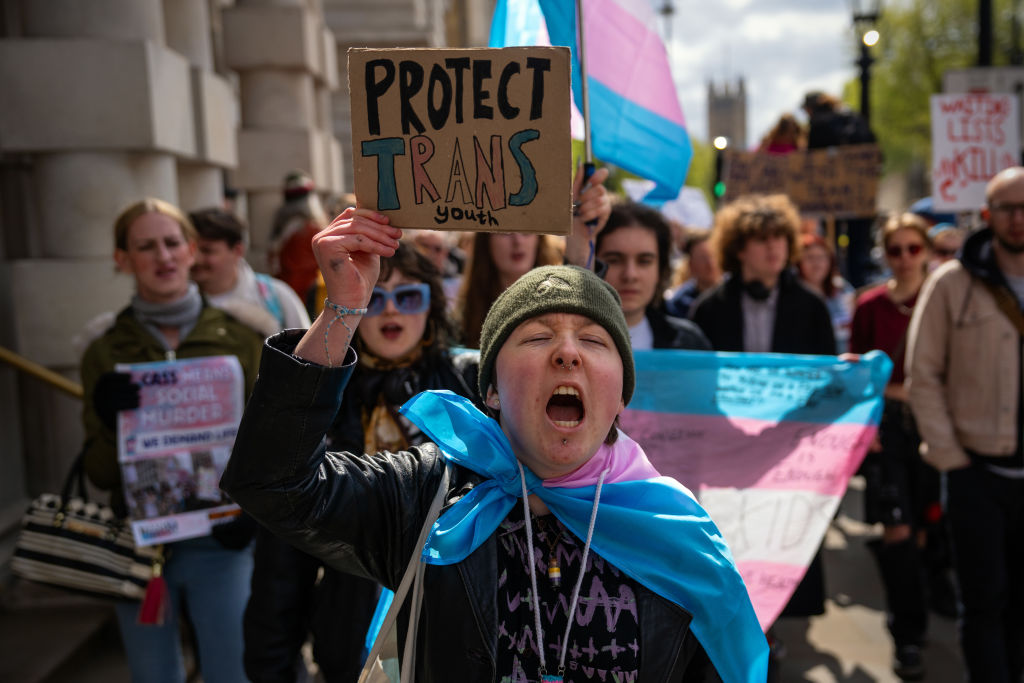Child transition charity Mermaids will today be grateful for a very easy ride from the Charity Commission.
A 22-page report, which took two years to complete, has found that “there has been mismanagement in the administration of the charity by the trustees”. The document concludes that this was because the “governance, culture and practices had failed to keep pace with its growing size”.
It is true that the charity has expanded rapidly, its income swelling from under £84,000 in 2016 to almost £2.3m in 2023. And, over the years, its approach has changed, too.
In 2009, Mermaids’ website included the statement “Gender Identity Disorders in infancy, childhood and adolescence are complex and have varied causes: in the majority of cases the eventual outcome will be homosexuality or bisexuality. Only a small proportion of cases will result in a transexual outcome.” Yet in the intervening period Mermaids has become a child transition machine, aggressively pushing for legal and medical changes to recognise the existence of so-called “transgender children”.
When Hilary Cass this year published her report into the scandal-struck gender identity services at the Tavistock clinic, Mermaids was aghast. The charity responded with a breathless statement, complaining that the findings of the world-leading paediatrician had been misrepresented in the press and Parliament. Rather than digesting Cass’s findings, it promised to continue to advocate for “access to medical interventions such as puberty suppressing and cross gender hormones”. The Charity Commission has rebuked Mermaids for this, instructing it to “give further consideration to the findings and conclusions of the Cass Review Final Report”.
This seems unlikely. Today, Mermaids is an ideology-led lobby group, not a support group that simply follows the science. Controversial campaigns launched by Mermaids include the right of students to take legal action, without parental consent, against schools which do not refer to them by their chosen names and pronouns; the provision of cross-sex hormones for children under 16; and a ban on any therapeutic treatment that does not affirm a child’s cross-sex or non-binary identity. Arguably even more concerning are the charity’s attempts to silence critics.
In 2021 Mermaids, with the help of the Good Law Project, launched legal action against the decision of the Charity Commission to award LGB Alliance charitable status. Then-CEO Susie Green claimed: “The work of the LGB Alliance is clearly designed to divide the LGBTQ+ community in an attempt to undermine and isolate trans people.” The case failed, and shortly afterwards the Charity Commission launched its investigation into Mermaids.
What was found by the Charity Commission is the tip of a murky genderberg. The remit of the report was narrow, based on 62 complaints and press coverage. Yet the Commission confirmed that Mermaids had appointed a trustee with a somewhat laissez-faire attitude to paedophilia, that breast binders (devices to flatten breast tissue) had been sent to young girls behind their parents’ backs, and that Mermaids had been unclear about whether medical information offered was “factual evidence” or merely the organisation’s own opinion.
Had a donkey sanctuary in rural Wales been found to have been so poorly managed, it might not matter so much. But Mermaids not only deals with a vulnerable group of children, it has been feted by celebrities and political figures across the world. These include Prince Harry, actor Emma Watson and US congresswoman Alexandria Ocasio-Cortez. The story of former CEO Susie Green, a woman who took her own child to Thailand for sex reassignment surgery for his 16th birthday, inspired the ITV television series Butterfly and the charity advised on the BBC Radio 4 series Just a Girl. Make no mistake, Mermaids has created ripples across the global and media landscape.
The line between activism and charitable work is often blurred. But when it comes to the physical and mental health of children, one would hope that evidence might outweigh ideology. Mermaids does not deserve a ticking off: it deserves to be struck off the charitable register altogether.











Join the discussion
Join like minded readers that support our journalism by becoming a paid subscriber
To join the discussion in the comments, become a paid subscriber.
Join like minded readers that support our journalism, read unlimited articles and enjoy other subscriber-only benefits.
Subscribe